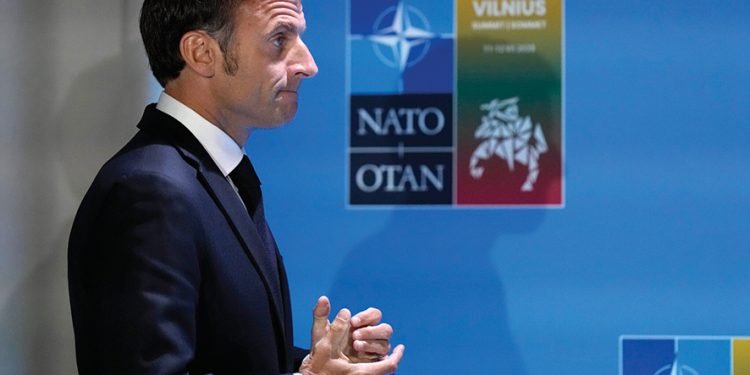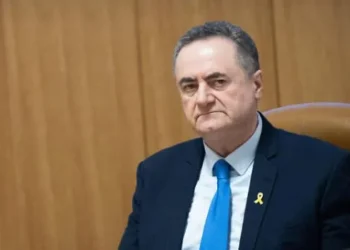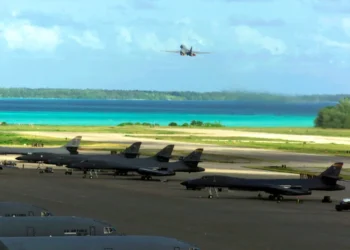The long-awaited debates surrounding Ukraine’s potential membership in NATO were held on July 11-12 in Vilnius, Lithuania. A year and a half after Russia launched the war against Ukraine, the NATO allies met at a historical summit. The event was eagerly awaited, particularly by countries hoping to see Ukraine join NATO. France’s position seems to have been noticed, particularly for its divergence from certain NATO leader countries, among them the United States and Germany. This blog aims to identify the French position at the Vilnius Summit concerning the integration of Ukraine and Georgia into NATO, and the reasons for this U-turn.
A brief overview of the French positions in NATO
France’s relations with its NATO allies have sometimes been stormy, and the Gaullist tradition seems to have lasted at least until Nicolas Sarkozy’s term in office. Charles de Gaulle was the first to distance himself from NATO, leaving the integrated NATO command in 1966. To maintain total independence in the use of its nuclear forces, De Gaulle opted for a strong and independent France. Relations between the United Kingdom and the United States were seen as too close, to the detriment of France. De Gaulle considered that the role of the United States was far too strong to guarantee French independence. Since then, there has been talk of France’s “anti-American” tradition, expressed mainly through its position in NATO. Furthermore, France has always been cautious about NATO’s eastward enlargement. Jacques Chirac criticized the idea of NATO’s expansion towards Georgia and Ukraine, fearing a deterioration of relations with Russia. Continuing in the same vein, Sarkozy also refused to allow the two countries to join NATO in 2008. We can highlight several explanations regarding this position. First, the alleged almost historical closeness between the Russian and French elites in the 19th century seemed to justify an indestructible partnership despite Russia’s aggressive behavior. Second, Russia remains an undeniable power, arguably explaining the continuation of French appeasement towards Moscow. In 2017, Emmanuel Macron welcomed Vladimir Putin to Versailles, a welcome that was roundly criticized. To abandon any prospect of Ukraine joining NATO or the European Union, President Macron even spoke of a “Finlandization of Ukraine”, announcing the content of France’s position concerning the enlargement process. The Russia-Ukraine war is now raging, and it seems Macron wants to become the “savior of the East”, unlike his German counterpart.
The French position on Ukraine’s accession at the NATO Vilnius Summit
In his speech in Bratislava, President Macron set the tone a month before the Vilnius Summit. Macron closed the Globsec 2023 Bratislava Forum, a first for a French President. In his speech, he focused on Russia’s war in Ukraine and collective security in Europe. In his view, the guarantees offered in the past to Ukraine and Georgia were “far too weak”. He expressed his wish for Sweden to join, further demonstrating his position on the potential enlargement of NATO, directly attempting to dismantle Russian ambitions. He also announced that he was prepared to give “tangible” guarantees to Ukraine at the Vilnius Summit. His positions were clear: France would support Ukraine’s membership in NATO, to secure Europe and guarantee Ukraine’s territorial integrity. He went on to say that Ukraine must be helped in “every way possible” to achieve lasting peace. Quoting Henry Kissinger, he also stated that Ukraine’s accession to the EU is equally necessary. Moreover, it is interesting to draw a parallel between US President Joe Biden’s statement in Vilnius and Macron’s in Bratislava. Biden said that Ukraine was not yet “ready” to join NATO. In Bratislava, Macron spoke of two mistakes that should not be made when it comes to Ukraine’s integration into the EU: closing our eyes and playing for time, or enlarging too quickly, without planning for the future (a direct reference to obtaining the Candidate Status, which does not imply that Ukraine is directly a member of the European Union). Macron demonstrated that he was capable of saying when we need to take our time, even in a crisis. However, he did not raise this argument with regard to NATO. He expressed his belief that Ukraine could become a full-fledged member of NATO. Finally, Macron declared that he wanted to “define a path to make Ukraine’s membership in NATO a reality”, changing his position completely between December and June. Macron and his administration have clearly expressed this wish. Shortly before the Vilnius Summit – on July 5 – French Minister for Europe and Foreign Affairs Catherine Colonna, in a message of congratulations to NATO’s Secretary General Jens Stoltenberg, also mentioned the desire for “long-term” support for Ukraine in order to adapt the Alliance to the new security context.
The French arguments for Ukraine’s accession to NATO can be summed up in three parts: First, Ukraine’s membership in NATO means that ensuring its security is no longer uncertain. At present, ensuring its security depends mainly on the delivery of weapons (Macron announced just before the Summit that long-range missiles would be delivered to Ukraine, reversing his previous strategy of not giving Kyiv weapons that could reach Russian territory). But the delivery of weapons remains uncertain: for how long, and how much? Second, Ukraine’s membership in NATO would stabilize and institutionalize aid, also in the interests of France, where more and more civil voices are being raised against spending on Ukraine. Lassitude and anger at the political situation in France could have led Macron to favor institutionalization. Third, France has an ambition to get Putin to sit at the negotiating table. Indeed, Macron believes that if Ukraine joins NATO, Putin will have to negotiate, putting an end to the war and bringing peace to Europe.
The French position on Georgia’s accession at the NATO Vilnius Summit
The Vilnius Summit focused primarily on the fate of Ukraine, yet Macron’s earlier Bratislava speech also revealed the French stance on Georgia’s NATO integration. As in Ukraine’s case, Macron recognized that Georgia is also subject to Russian “vindictiveness”. In June 2023, Macron noted that Georgia had also not received any solid guarantees. However, no official statement was made regarding Georgia. Only arguments given in favor of Ukraine’s accession could hint at the French position on Georgia. In Macron’s view, Ukraine should become a member of the Alliance, not least because the war is underway. Georgia is not directly facing Russian attacks at the moment – although Russia occupies 20% of its territory.
Compared with 2008, Georgia seems to have a better chance under Macron, who presents himself as open to enlargement. Nevertheless, one of Macron’s arguments is to stop the war, in which he is participating – indirectly – by sending arms. He likely considers that Ukraine is the priority and that the situation in Georgia could be improved through the Ukraine-Russia negotiations. Integrating Georgia into NATO does not seem to be on Macron’s immediate agenda, since the arguments put forward for Ukraine do not fit the Georgian situation.
Conclusion
France has modeled its position on NATO’s enlargement towards Ukraine and Georgia on those of the Baltic States and Poland. France’s stance (unlike that of Germany) has changed significantly as compared to 2008. Macron is refocusing his strategy on Ukraine. Even though Ukraine only obtained promises for its future membership and no immediate guarantees at the NATO Vilnius Summit, the French U-turn in policy is noteworthy. In light of the Bratislava speech, we can guess Macron’s strategy for the European Union too, with France set to become a major ally of Eastern Europe, Europe’s new gravitational point.
First published on gfsis.org.ge.
By Manelle Lepoix for GFSIS














